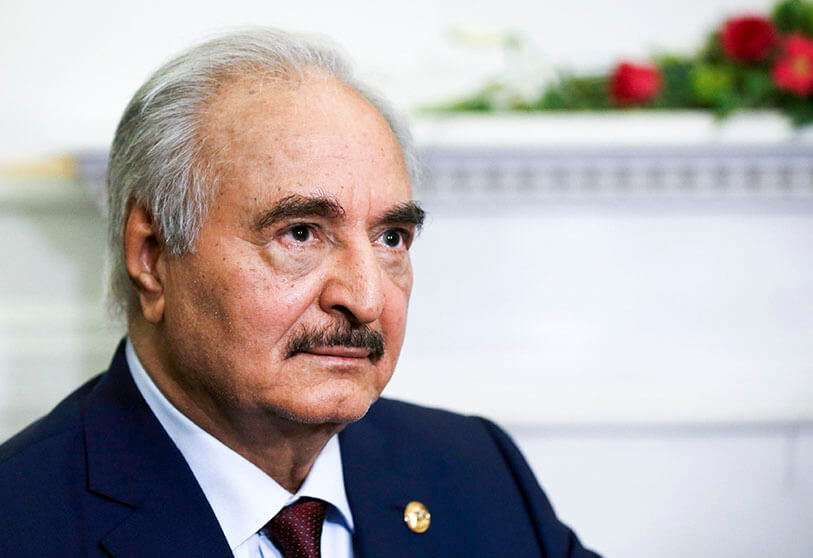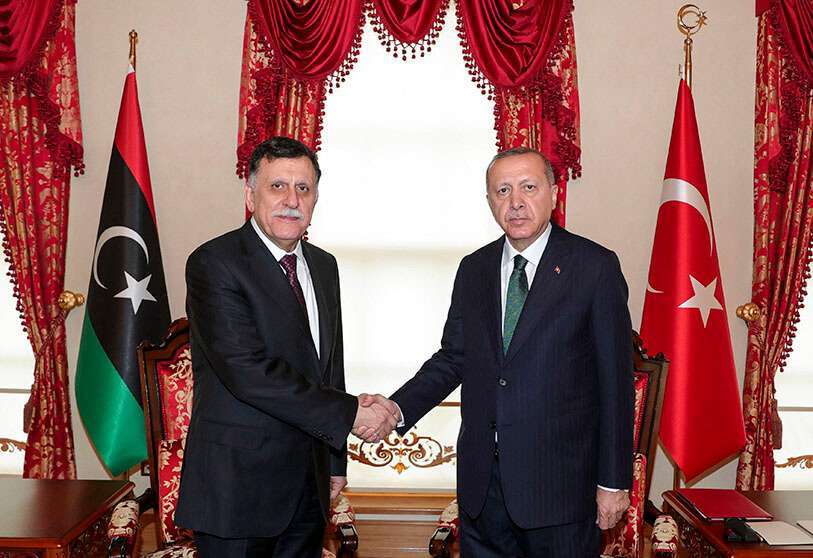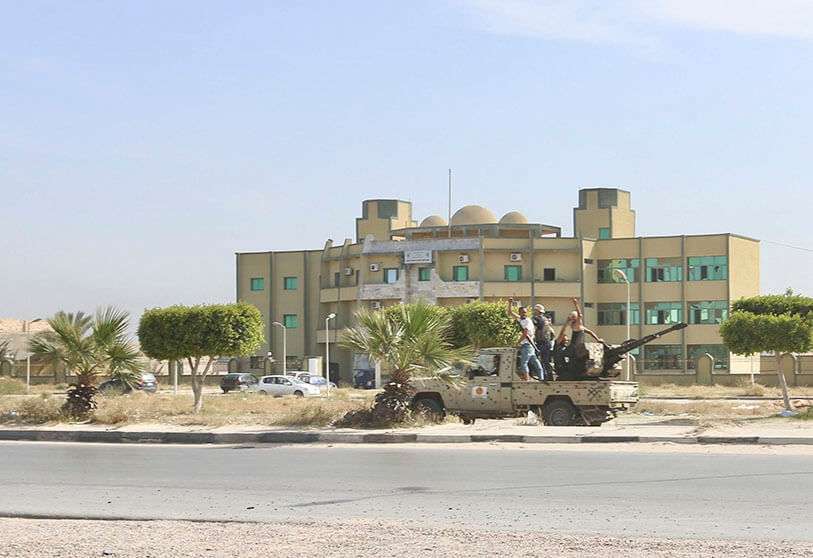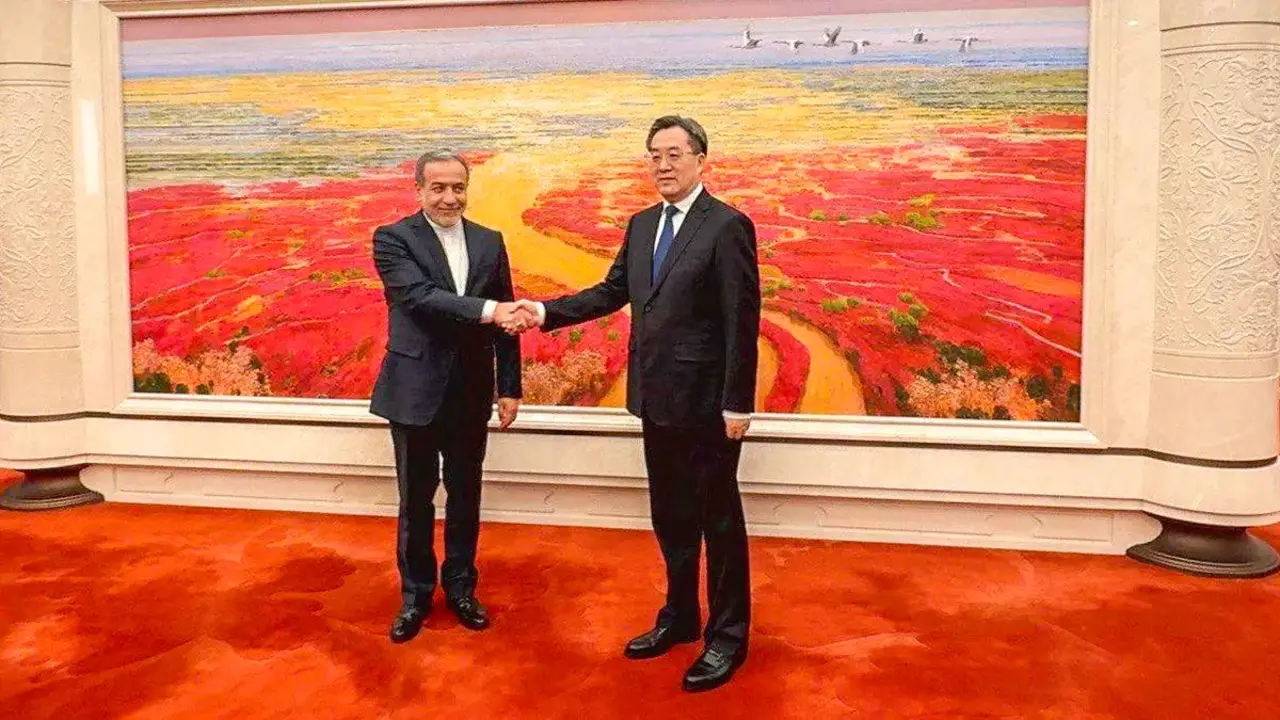Turkey sends new Syrian mercenary detachments to Libya

Turkey has started the process of transferring new paid Syrian militia groups from the Tal-Abyad region, located north of Syria on the border with Turkey, to be recruited and sent from Ottoman soil to the civil war in Libya.
The Syrian Observatory for Human Rights (OSDH), a UK-based organisation with a large network of observers on the ground, has warned of this development, noting that Turkish intelligence services had urged the leaders of the pro-Turkish Syrian militias to detail lists of hundreds of fighters with a view to sending them to Libya to fight in the near future.
Various factions drew up lists of troops that have now reached 2,200 names, led by the forces of Ahrar al-Sharqiya, a Syrian armed rebel group founded in 2016 by exiled and displaced elements mainly from Deir Ezzor Governorate and other eastern provinces, such as Al-Hasaka, due to the firm opposition of the Kurdish People's Protection Units (YPG) and the Syrian Government of Bachar al-Asad itself, fervent enemies of the Turkey headed by Recep Tayyip Erdogan. Precisely, many fighters in Ahrar al-Sharqiya come from the terrorist group of the al-Nusra Front, which is linked to the activity of Al-Qaeda in Syria. Jihadist terrorists who are being harassed by the Al-Asad regime.
The fate of these 2,200 mercenaries is that of Libya's civil war to fight in the service of the coalition formed by the Government of National Accord (GNA) of Prime Minister Fayez Sarraj and the Turkish state commanded by Erdogan, which faces the Libyan National Army (LNA), led by Marshal Jalifa Haftar.

According to the OSDH, Turkish intelligence pressured the various factions that make up the conglomerate of Syrian pro-Turkish militiamen to provide more combatants for this new shipment of troops, despite the reticence shown by them to stop the financial support that had been given by the Turkish state.
Among the factions that complained about this aspect is the Rahman Legion, with members coming from Ghouta and Homs, cities in the western part of Syria; whose aim is to overthrow the Syrian regime of Bashar al-Asad.
The Observatory pointed out that the Turkish intelligence services pressured the members of the Rahman Legion to have a greater supply of soldiers, after the Turkish side stopped distributing salaries for about two months and reduced the allowances provided to the militiamen with food and ammunition, as also detailed by the Al-Ain media.
Turkey is thus continuing the process of transporting mercenaries and extremists to fight the LNA in Haftar. Meanwhile, these militias supported by Turkish advisers intensify attacks against civilians in areas under the control of the Libyan Army, as well as bombing their properties and targeting hospitals, fuel trucks and medical supplies.

The number of deaths of Syrian mercenaries in Libya has now risen to 190, and Turkey has doubled the number of militiamen to compensate for their losses to the LNA.
Against this background, discontent is evident within the group of Syrian mercenaries posted by Turkey to Libya. The horror of the war and Ankara's failure to comply with the agreement has generated a scenario in which the pro-Turkish Syrian militiamen in Libyan territory are rising up against the Turkish officers themselves and the leaders of the forces loyal to Fayez Sarraj's GNA, even attempting to emigrate illegally to Europe via the Mediterranean, according to The Arab Weekly.
The local media also echoed the fed up between the Syrian and foreign mercenaries sent to Libya by Recep Tayyip Erdogan's executive to Turkish officials, on the one hand, and senior members of the UN-backed GNA militia based in Tripoli, on the other, after Turkey broke its promises and reduced its assigned salaries.
For their part, the leaders of the forces loyal to the GNA have branded this rebellion an act of disobedience and indiscipline on the part of the mercenaries.
The Syrian Human Rights Observatory itself reported last Sunday that Turkey had reduced the salaries of Syrian militiamen who had volunteered to fight in the conflict in Libya, provoking widespread protest among them.
This is one more turn of the screw by 'Sultan' Erdogan in his eagerness to expand in areas such as the Middle East and North Africa.
In the case of the Libyan war, the president of Turkey allied himself with Fayez Sarraj's GNA to confront Haftar's LNA rival in the framework of a civil war that has recently become a battle of foreign powers that have interfered in the fray. The conflict has become internationalised in recent months with the incursion of foreign countries interested in Libya, mainly because of its important resources, such as oil.
The LNA of Khalifa Haftar and the Eastern Executive of Tobruk which it represents are supported by Russia, France, Saudi Arabia, Egypt and the United Arab Emirates; Meanwhile, on the other side, the GNA has been supported by the UN since 2016 and, more recently, by Qatar and Turkey, the latter of which moved military equipment and armed troops (including the aforementioned pro-Turkish mercenaries in pay from Syria) to Libyan territory following the collaboration agreement signed by Turkish President Recep Tayyip Erdogan and Prime Minister Fayez Sarraj at the end of last year.
This pact between the Ottoman nation and the Libyan GNA also focused on the economic aspect with an agreement on the establishment of jurisdictional water limits and valuable exploitation areas in the Mediterranean arc, where Erdogan has set his eyes on the extraction of gas (this last aspect provoked the international denunciation of Cyprus and Greece, as they supposedly entered areas corresponding to Greek islands).

In spite of the last commitment of truce acquired in the last summit of Berlin on January 19, there continues being transference of military material and armed troops to the opposite parts. The conclave on German soil meant the meeting, for the first time in years, of the opposing parties in the Libyan conflict, which has been going on since 2011, when dictator Muammar al-Qadhafi was overthrown.
At the meeting in the German capital, Sarraj and Haftar (a former member of the military leadership of Gaddafi) agreed on a "comprehensive plan" to close the problem of the Libyan war, with the implementation of a cessation of hostilities and a verification commission made up of both sides to ensure that it was not violated. Despite this agreement, violent episodes and the continuation of the war escalation occurred under mutual accusations of ceasefire violations.
Marshal Haftar now controls a large part of Libya after extending his influence over the major cities of the south and the western oil fields of Al-Sharara and Al-Fil; all that remains is for him to take the city-state of Misrata and demolish the resistant stronghold of Tripoli, the headquarters of the GNA and the target on which the LNA launched a last major offensive that has been going on for a year now. Although it suffered last week strategic setbacks such as the loss of the towns of Sorman and Sabratha, along with other small towns further south, which were taken over by the Tripolitan forces.

The LNA justifies its military action by the intention of eliminating the terrorist strongholds in Tripoli in order to establish peace in the country and to achieve a subsequent political transition process. Meanwhile, the GNA presents itself as the legitimate power in Libya in the face of what they understand to be a military rebel coup.








